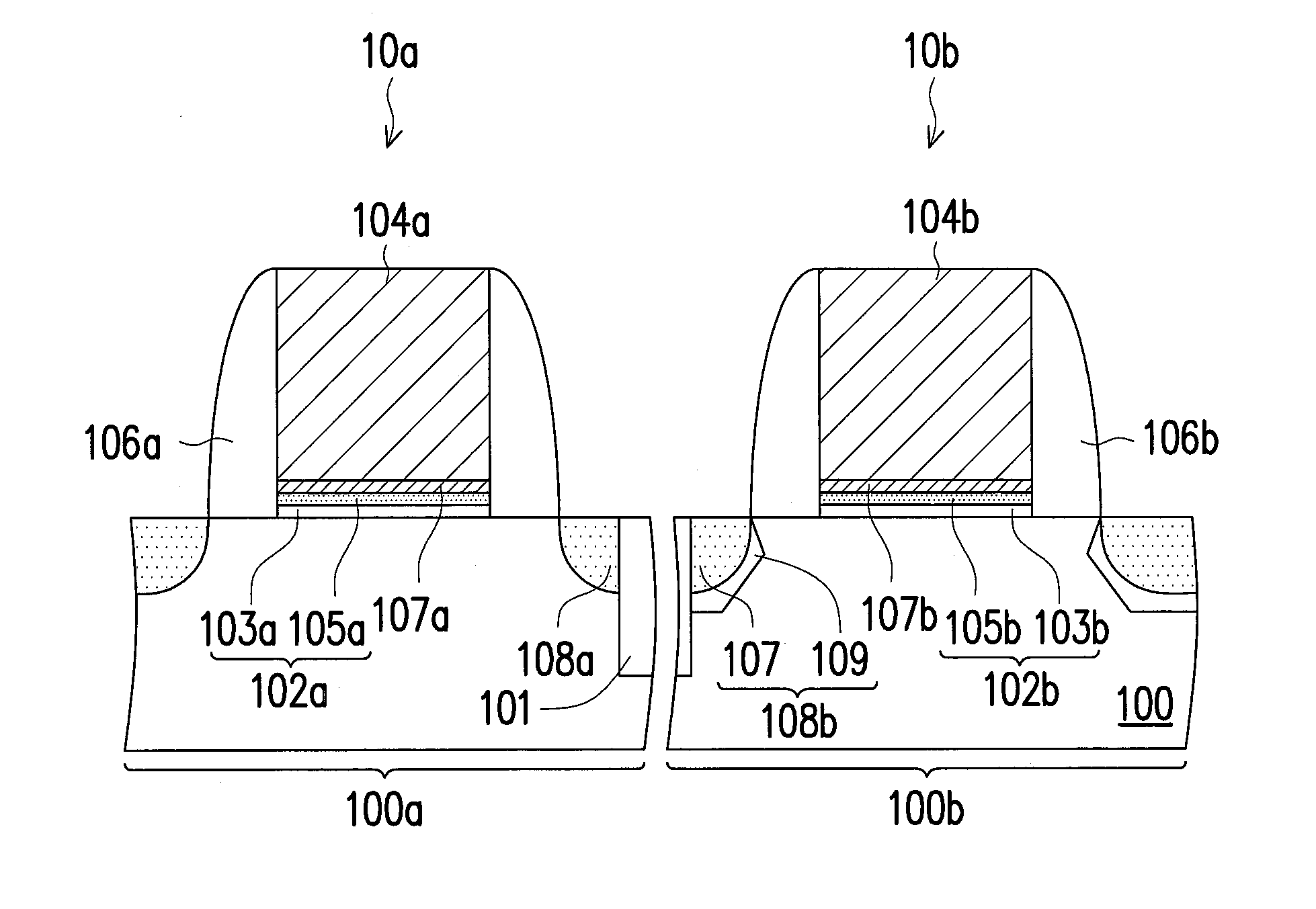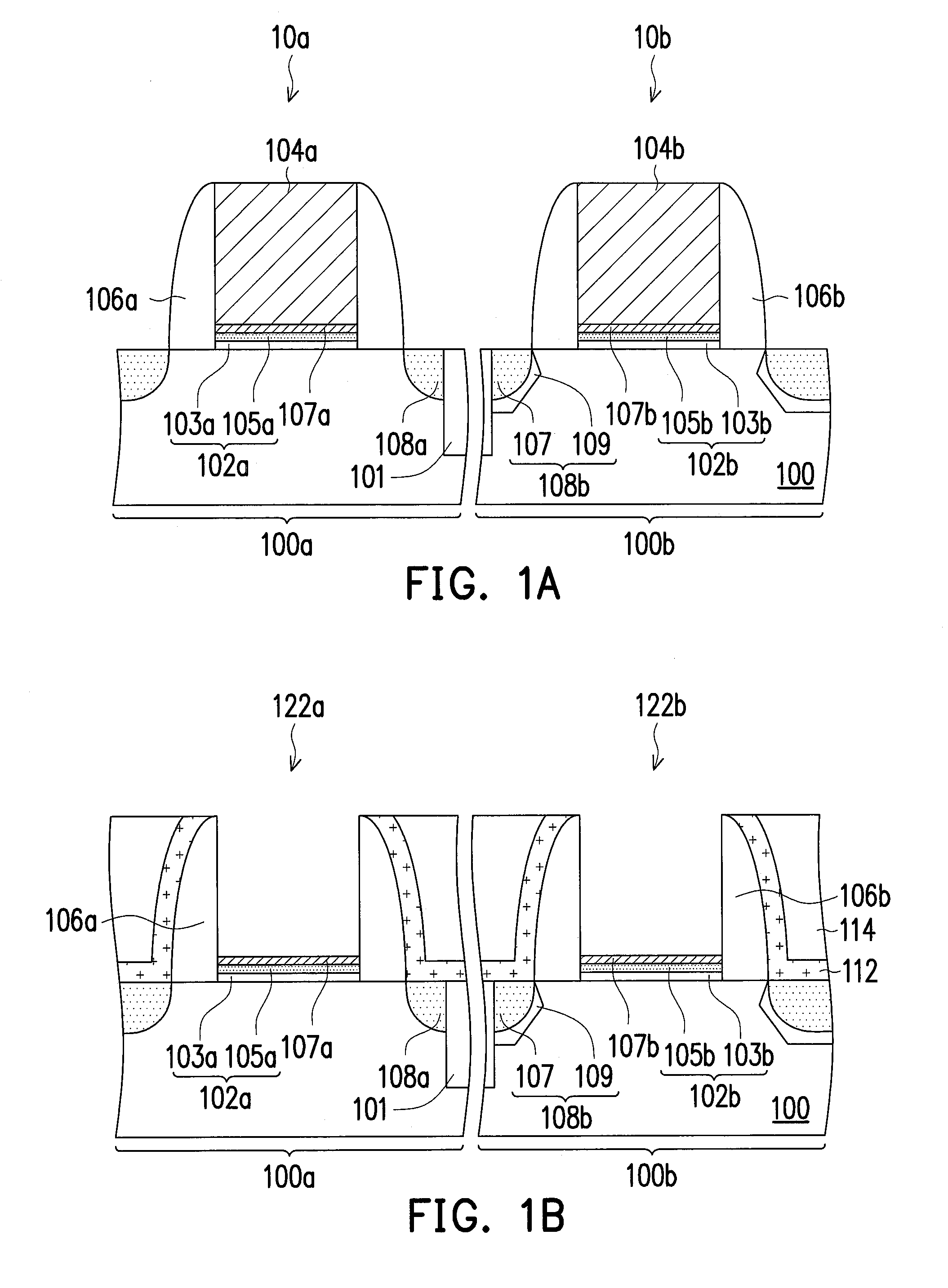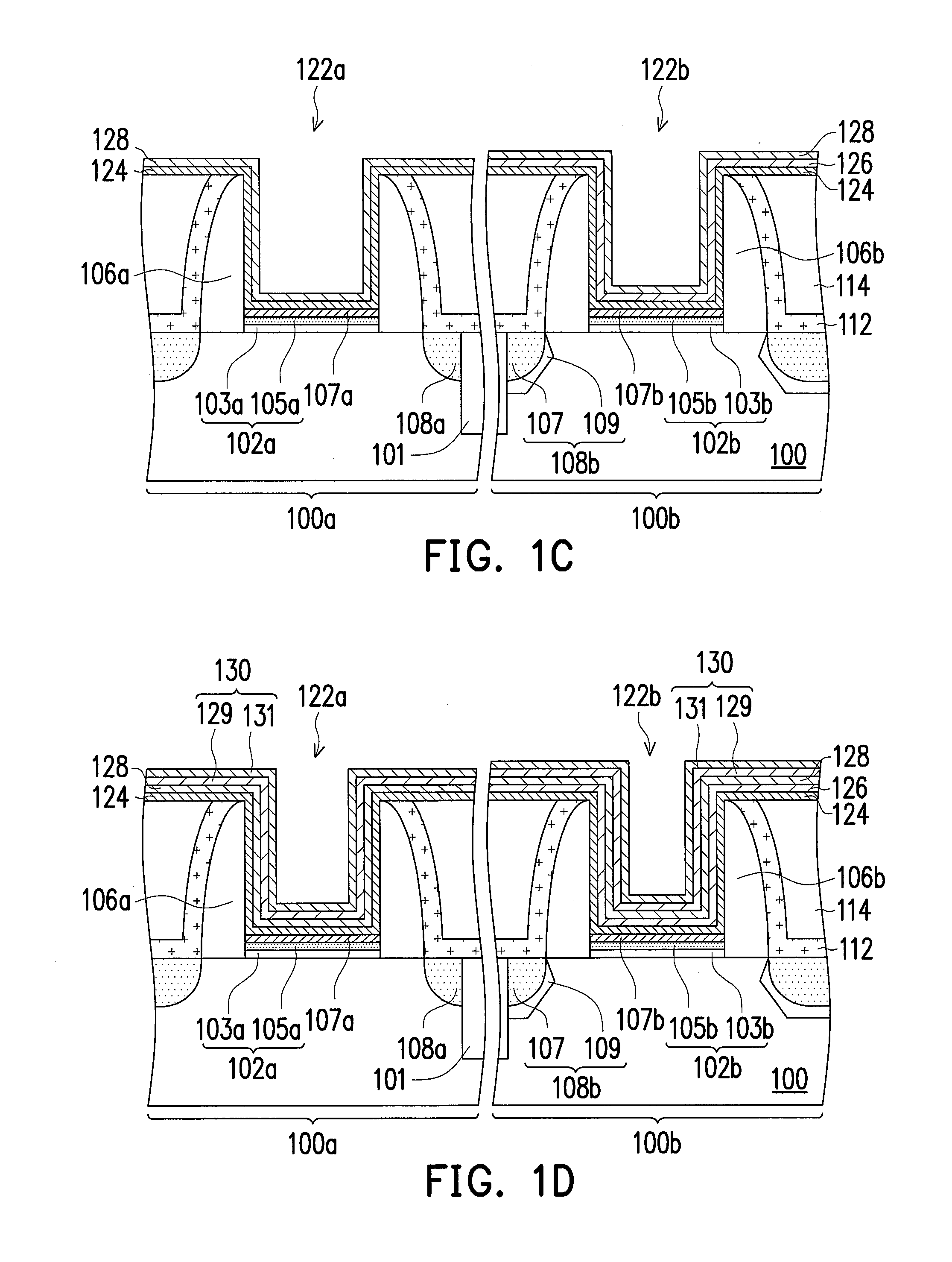Semiconductor structure and method of forming the same
- Summary
- Abstract
- Description
- Claims
- Application Information
AI Technical Summary
Benefits of technology
Problems solved by technology
Method used
Image
Examples
first embodiment
[0033]FIG. 1A to FIG. 1F-1 are schematic cross-sectional views illustrating a method of forming a semiconductor structure according to a first embodiment of the present invention. In this embodiment, the method of the invention is integrated with the “high-k first” process for illustration.
[0034]Referring to FIG. 1A, at least one gate structure is formed on a substrate 100. The substrate 100 can be a semiconductor substrate, such as a silicon substrate. In this embodiment, the substrate 100 has a first area 100a and a second area 100b, and gate structures 10a and 10b are respectively formed in the first and second areas 100a and 100b, but the present invention is not limited thereto. At least one shallow trench isolation (STI) structure 101 is formed in the substrate 100 between the gate structures 10a and 10b for providing electrical isolation. The first and second areas 100a and 100b are for forming semiconductor devices with different conductivity types. In an embodiment, the fir...
second embodiment
[0062]The second embodiment is similar to the first embodiment. The difference between first and second embodiments is described in the following, and the similarities are not iterated herein.
[0063]FIG. 2A to FIG. 2D-1 are schematic cross-sectional views illustrating a method of forming a semiconductor structure according to a second embodiment of the present invention.
[0064]Referring to FIG. 2A, at least one gate structure is formed on a substrate 100. The substrate 100 has a first area 100a and a second area 100b, and gate structures 12a and 12b are respectively formed in the first and second areas 100a and 100b. At least one STI structure 101 is formed in the substrate 100 between the gate structures 10a and 10b for providing electrical isolation. The first and second areas 100a and 100b are for forming semiconductor devices with different conductivity types. In an embodiment, the first area 100a is for forming an N-type device, and the second area 100b is for forming a P-type de...
PUM
 Login to View More
Login to View More Abstract
Description
Claims
Application Information
 Login to View More
Login to View More - R&D
- Intellectual Property
- Life Sciences
- Materials
- Tech Scout
- Unparalleled Data Quality
- Higher Quality Content
- 60% Fewer Hallucinations
Browse by: Latest US Patents, China's latest patents, Technical Efficacy Thesaurus, Application Domain, Technology Topic, Popular Technical Reports.
© 2025 PatSnap. All rights reserved.Legal|Privacy policy|Modern Slavery Act Transparency Statement|Sitemap|About US| Contact US: help@patsnap.com



